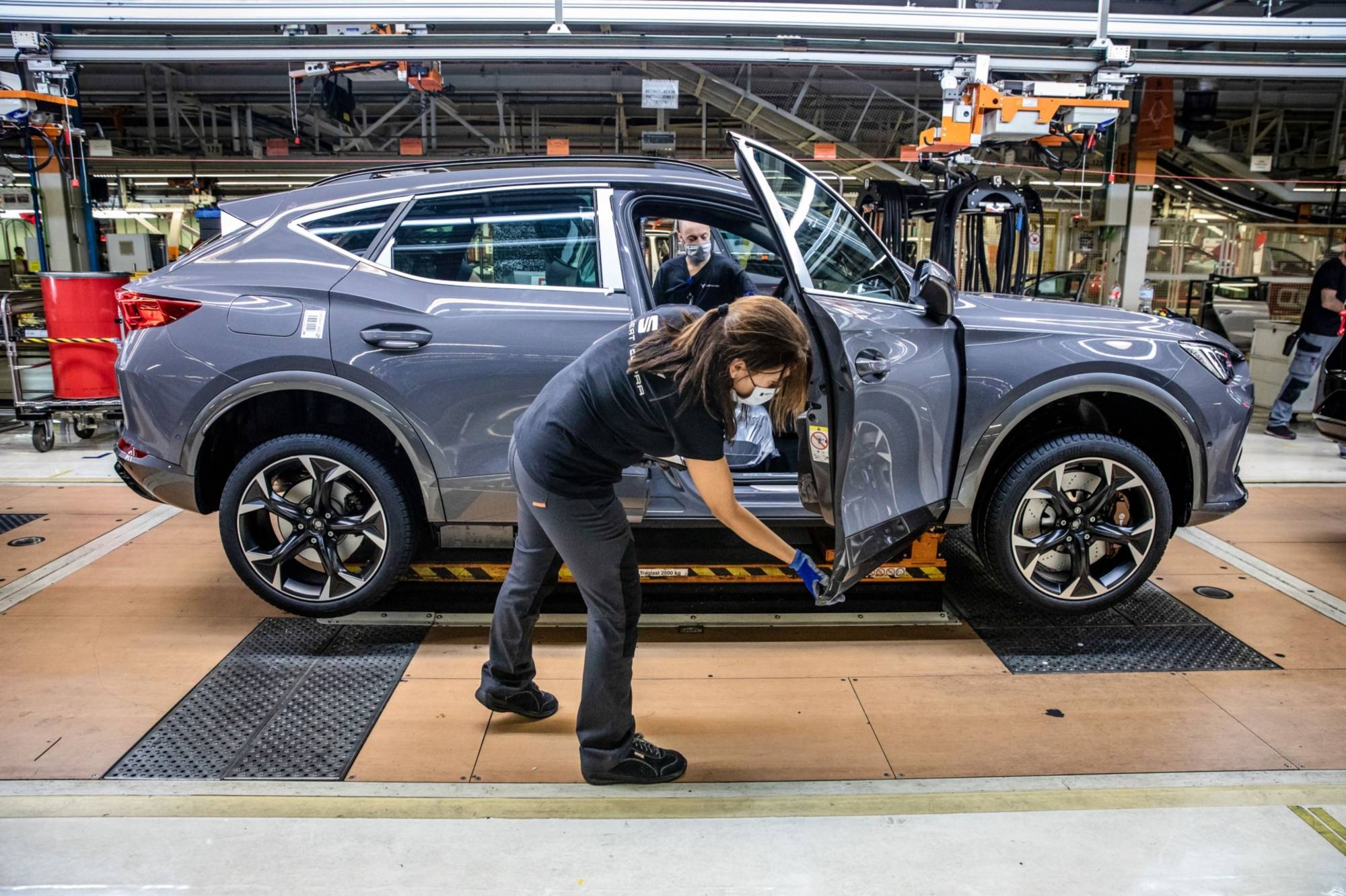A century after automakers showed the world the value of assembly-line manufacturing, a shortage of semiconductors is teaching the industry a painful new lesson in what it takes to build a car.
For most of its history, the industry has relied on a distinct approach to buying car parts, procuring components from suppliers right at the moment they’re needed. It’s referred to as just-in-time manufacturing and is designed to streamline production and eliminate the costs of keeping warehouses stocked with parts waiting to be used.
But the shortcomings of that system were made starkly clear this year as the automakers confronted a dearth of the chips they need to build advanced functions into their vehicles, and found themselves near the bottom of chipmakers’ customer lists because of their just-in-time approach. That shortage is threatening to cut $110 billion in sales from the industry, and forcing auto manufacturers to overhaul the way they get the electronic components that have become critical to contemporary car design.


















With your current subscription plan you can comment on stories. However, before writing your first comment, please create a display name in the Profile section of your subscriber account page.